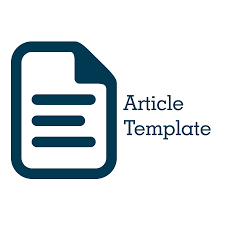Career Adaptability Pada Kelompok Disabilitas Dan Non Disabilitas: Kajian Komparatif
Abstract
Career adaptability memprediksikan kelenturan individu dalam menghadapi tuntutan kerja. Dalam era persaingan kerja yang bersifat dinamis, career adaptability dipandang sebagai modalitas yang dapat memprediksikan keberhasilan karir seseorang. Penelitian ini memusatkan pada perbandingan career adaptability pada kelompok disabilitas dan non disabilitas, yang pada era ini dihadapkan pada era persaingan pasar kerja yang inklusif. Dalam penelitian ini melibatkan 88 orang responden penyandang disabilitas dan 134 orang responden non disabilitas yang berdomisili di Jawa Timur. Responden mengisi survey secara online berupa skala Career Adapt-Abilities Scale (CAAS) yang telah diadaptasikan dalam konteks Indonesia. Dari hasil analisis menggunakan independent sample t-test didapatkan perbedaan yang signifikan antara career adaptability kelompok penyandang disabilitas dan non disabilitas (t=3.138, p=0.002). Secara umum career adaptability penyandang disabilitas (M=4,128, SD=0,444) lebih tinggi daripada career adaptability non disabilitas (M=4,128, SD=0,404). Hasil penelitian ini menepis anggapan negatif terkait modialitas penyandang disabilitas dalam memenuhi tantangan pasar kerja.
Keywords
Full Text:
PDFReferences
Autin, K., Douglass, R., Duffy, R., England, J., & Allan, B. (2017). Subjective social status, work volition, and career adaptability: A longitudinal study. Journal of Vocational Behavior, 99, 1-10.
Fugate, M., Kinicki, A. J., & Ashforth, B. E. (2004). Employability: A psycho-social construct, its dimensions, and applications. 65, 14-38.
Haibo, Y., Xiaoyu, G., Xiaoming, Z., & Zhijin, H. (2017, August). Career adaptability with or without career identity: How career adaptability leads to organizational success and individual career success? Journal of Career Assessment, 26(4), 717-731.
Hirschi, A. (2009). Career adaptability development in adolescence: Multiple predictors and effect on sense of power and life satisfaction. Journal of Vocational Behavior, 74(2), 145-155.
Hirschi, A., Herrmann, A., Keller, A.C. (2015). Career adaptivity, adaptability, and adapting: A conceptual and empirical investigation. Journal of Vocational Behavior, 87(1), 1-10
Hirschi, A. (2010). The role of chance events in the school-to-work transition: The influence of demographic, personality and career development variables. Journal of Vocational Behavior,, 77(1), 39-49.
ILO. (2017). Laporan akhir - Memetakan penyandang disabilitas (PD) di pasar tenaga kerja indonesia. International Labour Organization . Jakarta: Organisasi Perburuhan Internasional, Kantor Jakarta.
Jannah, U., & Saleh, A. (2017). The Correlation between sibling relationship and career adaptability among 9th grade students. Universitas Indonesia International Psychology Symposium for Undergraduate Research (pp. 89-94). Jakarta: Atlantic Press.
Johnston, C. (2018, February). A systematic review of the career adaptability literature and future outlook. Journal of Career Assessment, 26(1), 3-30.
Kaye, H., Jans, L., & Jones, E. (2011). Why don’t employers hire and retain workers with disabilities? Journal of Occupational Rehabilitation, 21(4), 526-536.
Khusna, U., & Indiati, W. (2016). Relationship between parental attachment and career adaptability in grade 12 senior high school students. Diversity in Unity: Perspectives from Psychology and Behavioral Sciences. Depok: Taylor & Francis Group.
Khusna, U., & Indiati, W. (2018). Relationship between parental attachment and career adaptability in grade 12 senior high school students. The asia-pacific research in social sciences and humanities, (pp. 297-302). Depok: Taylor & Francis Group.
McArdle, S., Waters, L., Briscoe, J., & Hall, D. (2007). Employability during unemployment: Adaptability, career identity and human and social capital. Journal of vocational behavior, 71, 247-264.
Monteiro, S., & Almeida, L. (2015). The relation of career adaptability to work experience, extracurricular activities, and work transition in Portuguese graduate students. Journal of Vocational Behavior, 91, 106-112.
Muslihati. (2017). A Study of Career Adaptability and Career Planning of Faculty of Education Students of Universitas Negeri Malang. 9th International Conference for Science Educators and Teachers (ICSET) (pp. 301-106). Semarang: Atlantic Press.
Rudolph, C., Lavigne, K., & Zacher, H. (2017, February). Career adaptabil- ity: A meta-analysis of relationships with measures of adaptivity, adapting responses, and adaptation results. Journal of Vocational Behavior , 98, 17-34.
Santili, S., Nota, L., Ginevra, M., & Soresi, S. (2014). Career adaptability, hope and life satisfaction in workers with intellectual disability. Journal of Vocational Behavior, 85(1), 67-74.
Savickas, M. (1997, March). Career adaptability: An integrative construct for life-span, life-space theory. The career development quarterly, 45, 247-259.
Savickas, M. (2005). The theory and practice of career construction. In R. Lent, & S. Brown, Career development and counseling: Putting theory and research to work (pp. 42-70). Hoboken, New Jersey: John Wiley & Sons.
Savickas, M., & Porfeli, E. (2012). Career Adapt-Abilities Scale: Construction, reliability, and measurement equivalence across 13 countries. Journal of Vocational Behavior, 80, 661-673.
Savickas, M., Nota, L., Rossier, J., Dauwalder, J.-P., Duarte, M., Guichard, J., . . . van Vianen, A. (2009). Life designing: A paradigm for career construction in the 21st century . Journal of Vocational Behavior, 75, 239-250.
DOI: https://doi.org/10.32528/ins.v15i2.1797
Refbacks
Copyright (c) 2019 Insight : Jurnal Pemikiran dan Penelitian Psikologi

This work is licensed under a Creative Commons Attribution 4.0 International License.
View My Stats


.jpg)







